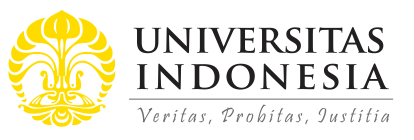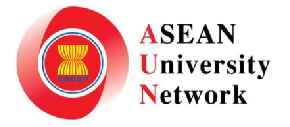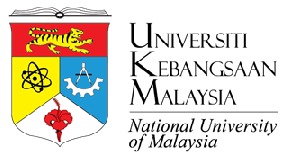
Abstract
In Indonesia, sites for TPA (landfills) as final waste dumping are still inlimited supply. Meanwhile, the amount of recycled waste is still low due to thelack of awareness about how to sort household waste. The citizens’participation activity for this study aimed to increase awareness about how tosort household waste by involving the stakeholders. The method used for thecitizens participation activity was obtained through four stages, includingadvocacy, counseling for garbage collectors, counseling for households, andmonitoring the waste sorting behavior in households. The obtained results arebased on a 100% attendance at counseling by both the stakeholders and thegarbage collectors. There is a significance difference in the level ofunderstanding found in households before and after the counseling. According tothe results of the study, as many as 44.2% of the households started sortingtheir waste based on monitoring.
References
Babaei, A.A. et al. 2015. Household recycling knowledge, attitudes and practices towards solid waste management. Resources, Conservation and Recycling, 102(SEPTEMBER), pp.94–100.
Barr, S. 2007. Factors Influencing Environmental Attitudes and Behaviors: A U.K. Case Study of Household Waste Management. Environment and Behavior, 39(4), pp.435–473.
Ekere, W., Mugisha, J. & Drake, L. 2009. Factors influencing waste separation and utilization among households in the Lake Victoria crescent, Uganda. Waste Management, 29(12), pp.3047–3051. Available at: http://dx.doi.org/10.1016/j.wasman.2009.08.001.
De Feo, G. & De Gisi, S. 2010. Domestic separation and collection of municipal solid waste: Opinion and awareness of citizens and workers. Sustainability, 2(5), pp.1297–1326.
Depok Statistics. 2018. Total Population in Depok City Year 2016. Depok: Depok Statistics.
Fujii, Y. 2008. Successful Source Separation in Asian Cities: Lessons from Japan’s Experience and an Action Research in Thailand, Tokyo. Available at: https://www.researchgate.net/publication/237520706_Successful_Source_Separation_in_Asian_Cities_Lessons_from_Japan’s_Experience_and_an_Action_Research_in_Thailand.
Halimatussadiah, A., Widyawati, D. & Syahril, S. 2016. Trust, Leadership, and Money Incentives and the Promotion of Participation in Community-Based Recycling Activity: Which One Works? Phillippines.
Kwek Wei Ling, T. and Wei Da, L. 2018. [online] Clc.gov.sg. Available at: https://www.clc.gov.sg/docs/default-source/commentaries/a-softer-approach-to-managing-waste.pdf [Accessed 15 Oct. 2018].
Law of Republic of Indonesia No. 18 Year 2008 concerning Waste Management.
Malau, B.S.L. 2018. Penutupan TPA Cipayung di Depok Direncanakan Tahun Depan. Warta Kota.
Ministry of Environment and Forestry Republic of Indonesia. 2016. PENUTUPAN PEKAN LINGKUNGAN DAN KEHUTANAN INDONESIA 2015 RANGKAIAN HLH 2015–DIALOG., pp.1–5. Mulyadi, A.,
Husein, S. & Saam, Z. 2010. Perilaku masyarakat dan peranserta pemerintah daerah dalam pengelolaan sampah di kota tembilahan. Ilmu Lingkungan, 3(2), pp.147–162. Available at: http://ejournal.unri.ac.id/.
National Institute of Health Research and Development, Indonesian Ministry of Health. 2018. Riset: 24 Persen Sampah di Indonesia Masih Tak Terkelola. [Online] Available at: http://litbang.kemendagri.go.id/website/riset-24-persen-sampah-di-indonesia-masih-tak-terkelola/ [Accessed 11 November 2018].
Niyati, M. 2015. A Comparative Study of Municipal Solid Waste Management in India and Japan. The Gakken Research Papers, 25.
Permana, A.S. et al. 2015. Sustainable solid waste management practices and perceived cleanliness in a low-income city. Habitat International, 49, pp.197–205.
Retno, D. & Suryani, S. 2015. Waste Bank as Community-based Environmental Governance: A Lesson Learned from Surabaya. Procedia - Social and Behavioral Sciences, 184(August 2014), pp.171–179. Available at: http://dx.doi.org/10.1016/j.sbspro.2015.05.077.
Sheau-ting, L., Sin-yee, T. & Weng-wai, C. 2016. Preferred Attributes of Waste Separation Behaviour: An Empirical Study. Procedia Engineering, 145, pp.738–745. Available at: http://dx.doi.org/10.1016/j.proeng.2016.04.094.
Squires, C.O. 2006. PUBLIC PARTICIPATION IN SOLID WASTE MANAGEMENT IN SMALL ISLAND DEVELOPING STATES.
Teguh Sulistiyani, A. and Wulandari, Y. 2017. Proses Pemberdayaan Masyarakat Desa Sitimulyo, Kecamatan Piyungan, Kabupaten Bantul dalam Pembentukan Kelompok Pengelola Sampah Mandiri. Indonesian Journal of Community Engagement, 02.
United Nations Human Settlements Programme. 2010. Solid Waste Management in the World’s Cities, London and Washington DC.
United States Environmental Protection Agency. 2009. Municipal Solid Waste Generation, Recycling, and Disposal in the United States: Facts and Figures for 2009. EPA United States Environmental Protection Agency, pp.1–12.
Widayatno, T. and Vitasari, D. 2009. Penyuluhan Pengolahan Limbah Pertanian dan Sampah Rumah Tangga di Desa Demangan Kecamatan Sambi Kabupaten Boyolali. publikasiilmiah.ums.ac.id, [online] 12(1410-9344). Available at: https://publikasiilmiah.ums.ac.id/bitstream/handle/11617/1162/69-75.pdf;sequence=1
Yang, L., Li, Z.S. & Fu, H.Z. 2011. Model of Municipal Solid Waste Source Separation Activity: A Case Study of Beijing. Journal of the Air & Waste Management Association, 61(November), pp.157–163.
Zhang, H. & Wen, Z.-G. 2014. Residents’ Household Solid Waste (HSW) Source Separation Activity: A Case Study of Suzhou, China. Sustainability, 6, pp.6446–6466.
Recommended Citation
Zakianis, Zakianis; Koesoemawardani, Pratiwi; Fauzia, Sifa; Asror, Muhammad Mustaghfiri; and Ferliana, Erin
(2018).
The citizens’ participation of household solid waste management and monitoring of household solid waste separation in Kelurahan Abadijaya, Kecamatan Sukmajaya, Depok.
ASEAN Journal of Community Engagement, 2(2).
Available at: https://doi.org/10.7454/ajce.v2i2.141







